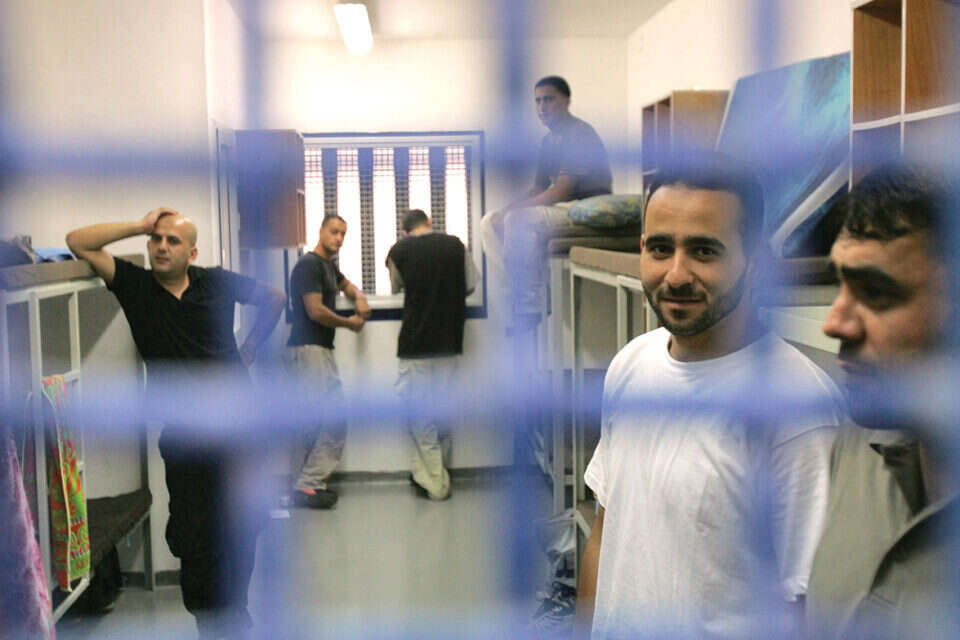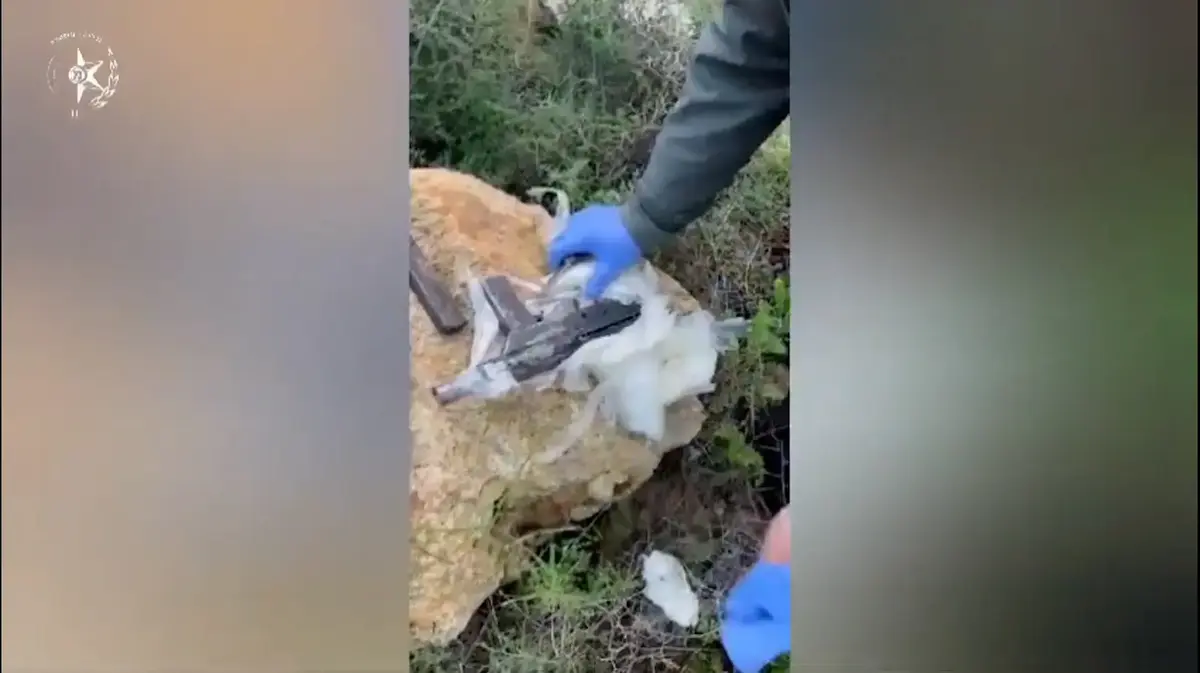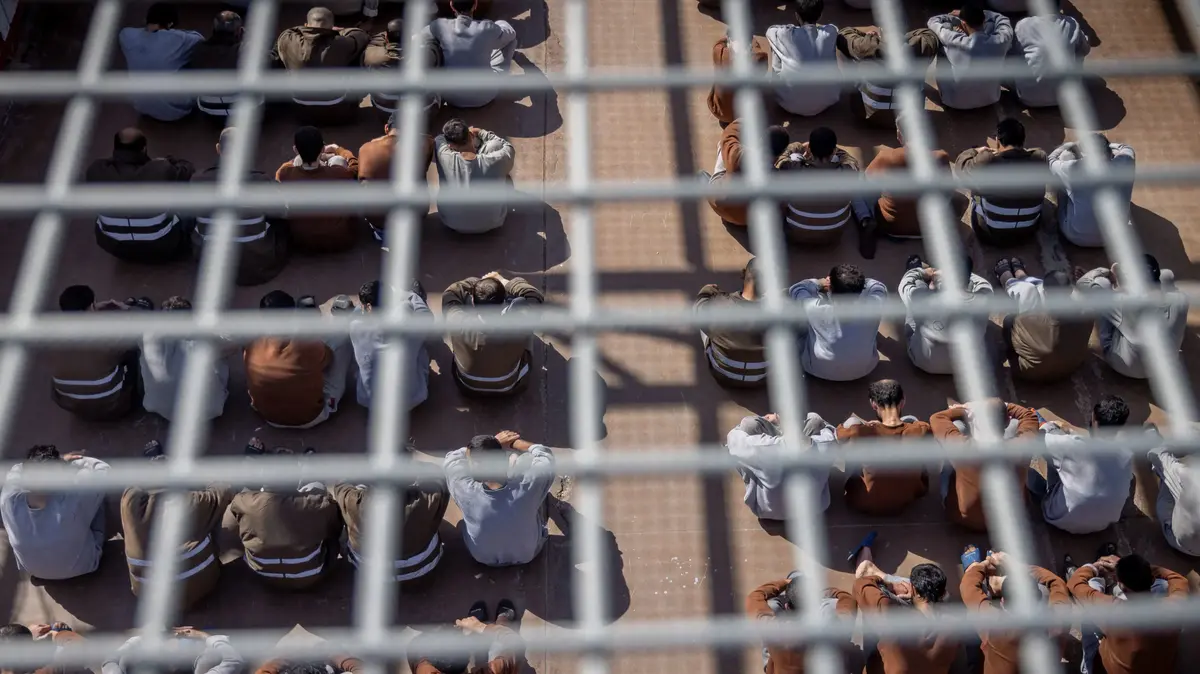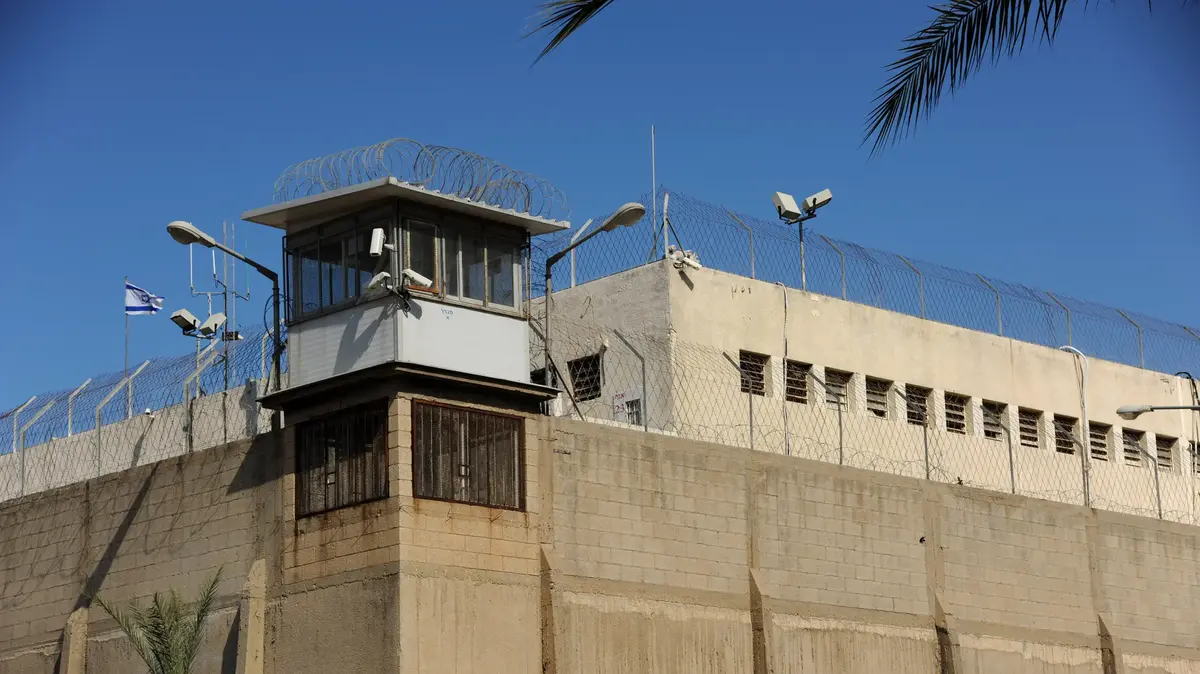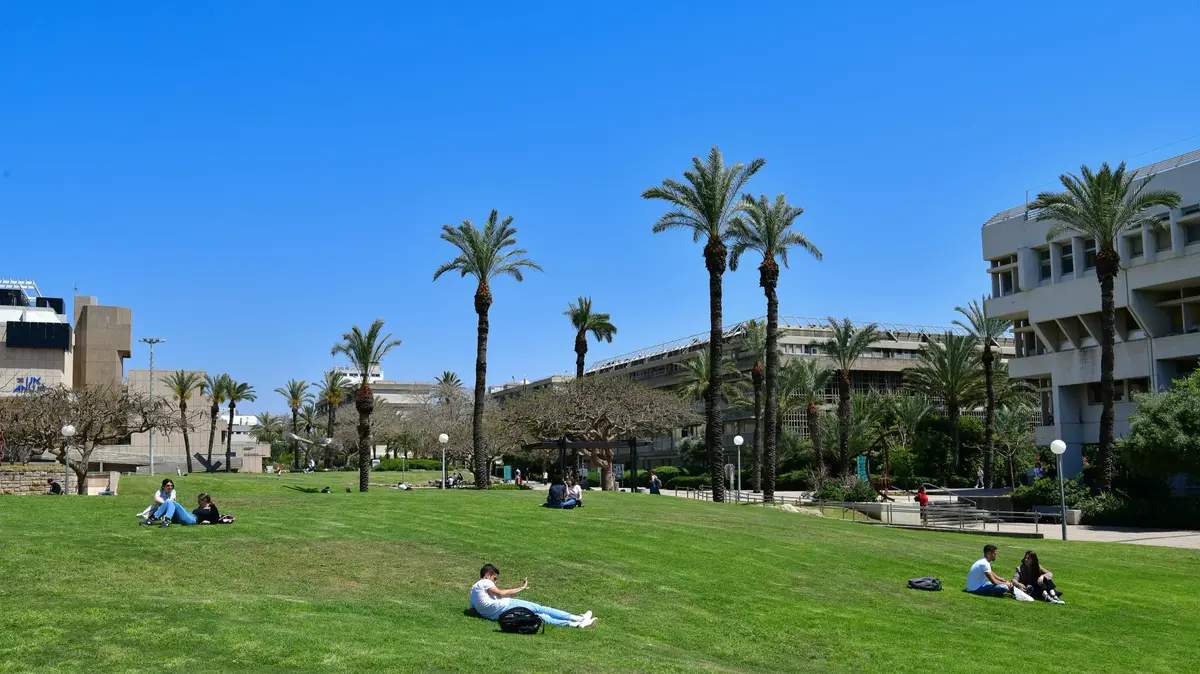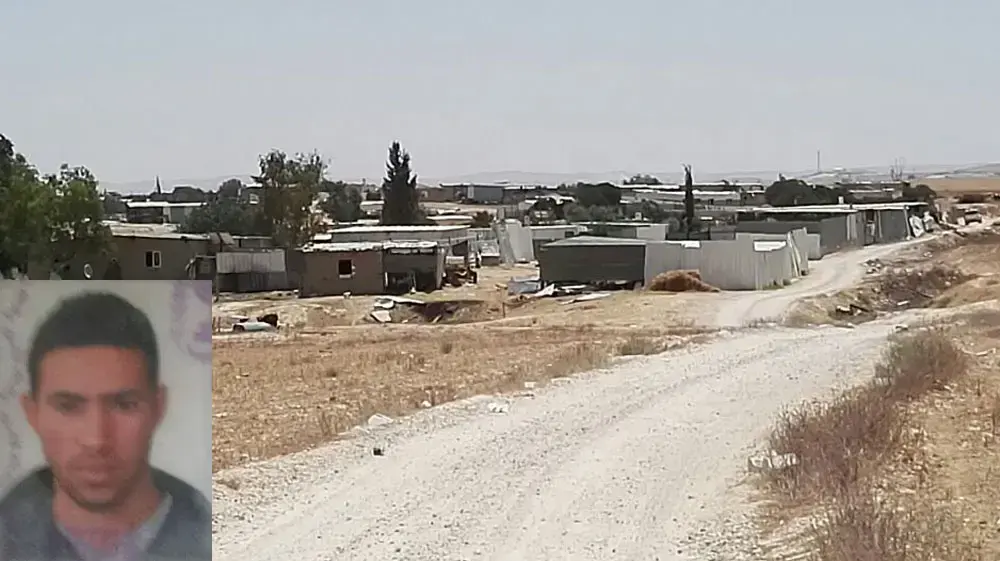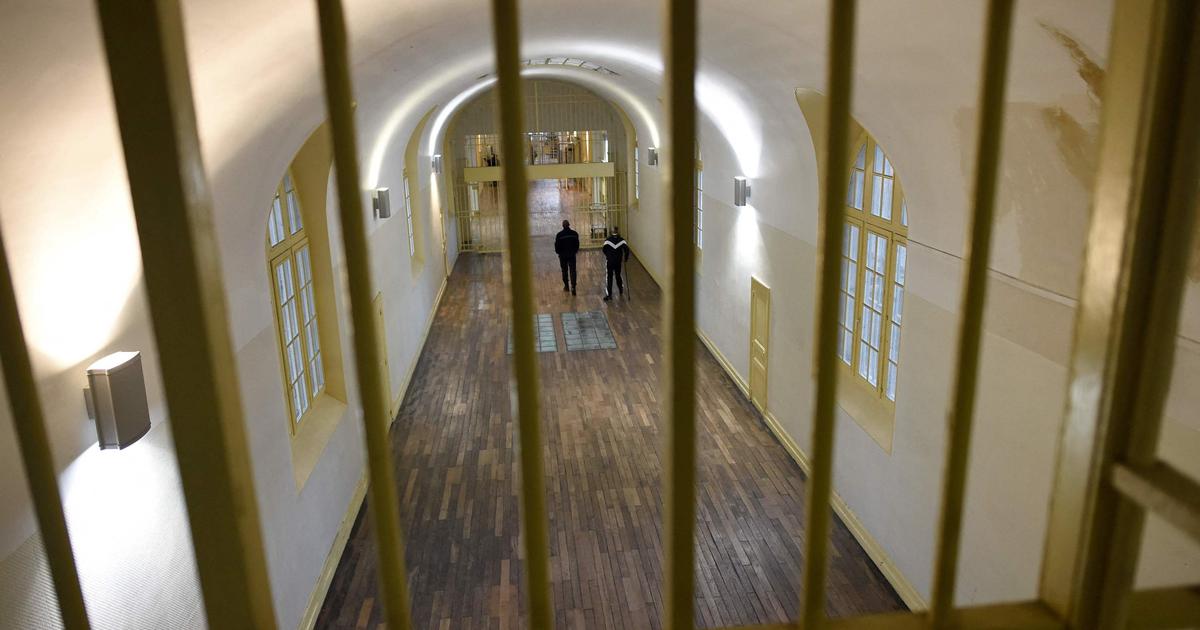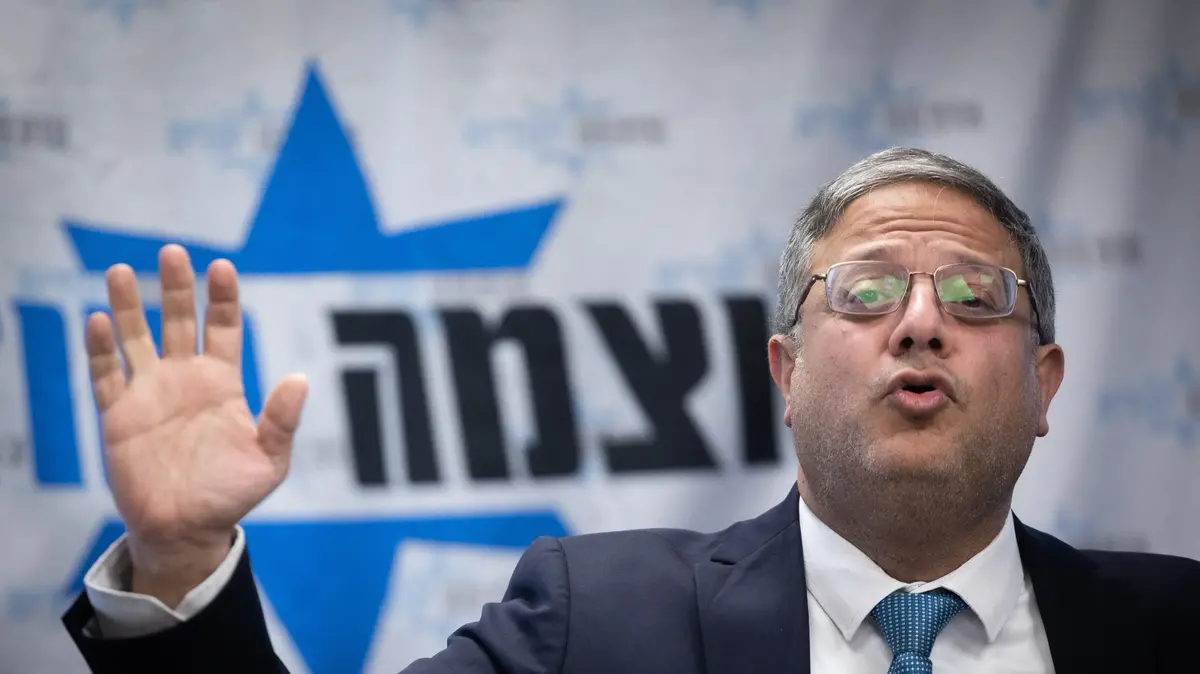"Women have our hands on the terrorists and they will pay the price," said Prime Minister Naftali Bennett after the horrific attack on Elad. In prison on full board terms, and will live in the security wards where "the de facto autonomy of the prisoners prevails ... which allows them to strengthen the organizational-terrorist identity," reads a page 7 of a reserved report, which reached Israel Today and was first exposed.
"An example of the security damage that may be caused as a result of the free hand given to security prisoners in the management of their internal affairs can be found in directing terrorism from security prisons. As brought to the committee's attention: Additional data from the defense establishment that reached "Israel Today", in 2019 there were 15 intentions for terrorist attacks from prisons, in 2020 there were 11, in 2021 the number dropped to 5, and from the beginning of 2022 there were two intentions for terrorist attacks within the prison walls.
Bury the recommendations
The Public Committee for the Investigation of the Conditions of Security Prisoners Detained in Prisons was established in June 2018 by the then Minister of Internal Security, Gilad Ardan.
The committee members, headed by (retired) Shlomi Katabi, visited ten prisons, and after 40 discussions and talks with dozens of senior members of the IPS, the Shin Bet, the IDF and the Ministry of Justice, submitted an 80-page report at the end of 2018.
In January 2019, the Ministry of Internal Security published a brief summary of the committee's recommendations, with the aim of reducing the autonomy enjoyed by security prisoners in prisons.
Among other things, it was recommended to cancel their placement into separate divisions in accordance with organizational affiliation;
Abolish the institution of the "speaker" in favor of a substitute representative who has no blood on his hands;
Cut funds deposited in prisons for terrorists and withhold deposits from the Palestinian Authority;
And stop the group foreign procurement of food products and co-cooking.
At a gala press conference, Arden announced that he embraced the main conclusions of the report, and that the recommendations would be implemented after they were presented to the Political-Security Cabinet at a forthcoming discussion. How close? At the time, Meir Ben-Shabbat submitted a formal request to the secretariat of the National Security Council to schedule a cabinet hearing, but was not granted.
The GSS, which accepted most of the recommendations of the Arden Commission, has meanwhile written an opinion that warned of media noise that would lead to a regional flare-up. To all these were added the rounds of elections that reduced cabinet discussions.
Upon entering the Ministry of Internal Security, Minister Amir Ohana also demanded that the conclusions of the report be discussed and approved by the Cabinet, and was also rejected. It was Benjamin Netanyahu who refrained from discussing the committee's recommendations, while heeding the warnings of jurists and intelligence officials, who would rather acquire more imaginary silence than make profound changes.
Minister Amar Bar-Lev did not have time to take office and has already dealt with the escape of prisoners from Gilboa Prison.
It was an opportunity to convene a cabinet discussion and finally approve the recommendations of the Arden Commission, but Prime Minister Bennett chose a particularly original step: the establishment of another committee, the Gilboa Committee, or in its full name "the Government Inquiry Committee for the Escape of Gilboa Prison."
This committee discussed, among other things, the non-implementation of the Arden Commission's recommendations.
The "If You Will" organization submitted a detailed report to the Gilboa Committee that proved how almost all of the Arden Commission's cymbals were not implemented. .
* The "speaker" (representative) actually became an exclusive means of communication between the prisoners and the prison staff
* 75% of the speakers were convicted of serious security offenses,
some with blood on their hands
* Contrary to orders, the speakers are involved in placing prisoners in
the wings Without supervision
Thus, for three and a half years, under the heading "Shomor," the Arden report continued to raise dust in safes at the IPS, the National Security Council, and the Ministry of Internal Security. Only a few were allowed to review it. In the report, they encountered a complete refusal.
Is it because these substances are so classified?
Not sure.
It seems that in the guise of maintaining state security, elected officials, and senior members of the IPS and the Shin Bet, do not want us to know that the writing was on the wall, shining red.
Israel Today has managed to get its hands on the full report, and we are quoting parts of it for the first time.
revolving doors
Despite the long time that has elapsed, as stated, the vast majority of the committee's recommendations have not been implemented in practice.
Thus, the Israeli prison continues to be an incubator for terrorism, as evidenced by the high rates of released prisoners who took part in the recent wave attacks.
Thus, Muhammad Galeb Ahmad Abu Alqian, a security prisoner released from Hura in the Negev, killed four Israelis in a terrorist attack in Be'er Sheva.
Thus, Diaa Hamarsha from the village of Yaved near Jenin, a former prisoner, killed five people in a terrorist attack in Bnei Brak.
Thus, Ibrahim Agbaria, one of the two terrorists in Umm al-Fahm who murdered two border soldiers in Hadera, also accumulated PZM in the Israeli prison.
Thus, last March, the retired prisoner and administrative detainee, Wesim Acid from Hebron, murdered a Moldovan worker in Jerusalem, and his investigation revealed that he also murdered the Kadouri couple in January 2019 at the Commissioner's Palace.
To the major attacks can be added at least two more attempted attacks carried out by former prisoners, all in a short period of about three months.
All of these terrorists were convicted of relatively minor security offenses, sat in jail for a short period of up to four years, and precisely after release became murderous terrorists.
So what exactly is going on behind the bars that turns prisons into a breeding ground for terrorism?
"Taking a person who has no ideology and security background, and throwing him out with security prisoners, it makes people become terrorists," says E., who was released from prison a few years ago and moved away from the world of terrorism and crime.
"Why put an Israeli citizen with people from the territories? Even if Israeli citizens made a security mistake, it is a shame and a disaster to put them there, it will only lead to more terrorist attacks."
E. is an Israeli Arab from the north, who at a young age became a drug dealer smuggled from Lebanon.
After the drugs, he also degenerated into weapons, until he was caught and convicted of aiding a terrorist organization. When he arrived at Gilboa Prison, he was asked, in the usual procedure, to inform which terrorist organization he belonged to, in order to place him in the appropriate wing. Today, about 4,550 security prisoners are imprisoned, of whom about 3,900 are Palestinians, most of whom are affiliated with Fatah and Hamas.
A. refused to belong to one of the organizations, claiming that his actions were against a criminal background.
Since he was convicted of security offenses he was nevertheless admitted to the Security Division.
From that moment on he was forbidden to make direct contact with the prison staff.
"Alas if an inmate speaks to a prisoner not through the 'speaker' chosen by the inmates in the wing.
It is a country within a country.
I wrote to the management and asked to be transferred because I do not want to live with these bastards.
I had to hand over the papers through the 'speaker'.
He opened and read.
There was almost murder between me and them.
Only when I threatened to harm their families did they stop.
"The IPS today does not know how to run the prison without the speakers, but this role should be abolished."
He is unwilling to reveal the name of the "speaker" who threatened him at Gilboa Prison.
"I'm not a tinker. When the intelligence officer took me to the clinic and tried to extract information from me, I refused."
The supreme rulers of the prison
So who are those speakers?
And how did they become the supreme rulers of the prison?
The idea of an elected representation of prisoners is enshrined in the Fourth Geneva Convention.
Although the State of Israel does not officially recognize security prisoners as prisoners of war, elements of it have been implemented over the years.
The status of the "speaker" has crept in over the years following the hunger strikes of the security prisoners, until official recognition.
Section 6 of IPS Ordinances No. 03.02.00 - Rules in relation to security prisoners, states: "For the purpose of dealing with current problems of prisoners and transferring instructions from the prison administration and its instructions to prisoners, a spokesman shall be selected from among the prisoners for each ward.
Arden testifies before the Gilboa Committee, 2022, Photo: Jonathan Shaul
At the same time, IPS orders restrict the boundaries of the "spokesman", prohibit his free movement between cells and wings, prohibit him from being involved in the placement of prisoners in the wing, and prohibit the prison administration from granting him unique benefits. "Almost exclusive to communication between the security prisoners and the prison staff ... Contrary to orders, the speakers are involved in the placement and placement of prisoners in the wing."
The committee found that there were both assistant speakers and representatives of organizations, and they all moved between the wings in violation of orders and without supervision.
For example, the report presents Abbas al-Sayed, who is responsible for planning the attacks on the Park Hotel and the Sharon Mall, in which 35 Israelis were killed, as a Hamas representative in Ramon Prison.
The Committee states that "Prisoners who constitute distinct 'symbols of terrorism' should not be allowed to serve in any position vis-à-vis the prison administration. The institution of the speaker over the years has led to a blurring of boundaries between faculty members and speakers, which is reflected in the day-to-day management of the division in all aspects.
.
In the fourth chapter of the report, the committee presents unpublished data to date. Out of 61 "speakers" in the various security divisions: 15 speakers sentenced to at least one life sentence; eight judges for a period of 25 years or more, eight judges for 20 years or more; 11 judges; For 15 years or more; and four convicts for 10 years or more. This means that 75 percent of the "speakers" have been convicted of serious security offenses, and at least 15 of them are clear symbols of terror with a lot of blood on their hands.
Talking with blood on their hands
Arden, according to the discussions in the Gilboa committee, demanded that the IPS on several occasions begin to implement the abolition of the "spokesman" institution, even before the implementation of the decision to mix the prisoners waiting for cabinet approval. S. Please publish the details of the offenses for which the speakers were convicted or provide us with the names of the current speakers, the IPS avoided providing any information.
A fact enshrined in the district court's decision of 2021, "an IPS spokeswoman said.
The decision was made in response to a petition for freedom of information filed by the Lavi organization, in which the IPS admitted that those convicted of the deadly crimes still serve as spokespersons. D. Avichai Boaron, who represented Lavi in the petition.
Despite trying to hide their identities, we have managed to collect several names of "speakers" over the years: The most famous of them all is Samir Kuntar, who murdered the Haran family and two policemen, in a 1979 terrorist attack in Nahariya, sentenced to five life terms and released from prison in exchange for returning abducted soldiers.
Another famous "spokesman" is the terrorist Walid Daka, an Israeli citizen who abducted and murdered the soldier Moshe Tamam, was sentenced to life imprisonment and served as a "spokesman" in several prisons where he was held.
Basel Bizri, a Fatah activist from Nablus, served as a spokesman for Ketziot Prison for ten years. He was convicted of planning the attack in Neve Sha'anan in 2002, in which four Israelis were killed. Security during a meeting with Bizarre.
Tawfiq Abu Naim, a key operative in Hamas' military wing, was also a "spokesman" at Nafha Prison.
He was convicted of planning many terrorist attacks that killed dozens of Israelis, but was released from the Israeli prison 23 years later.
In prison he was very close to Yahya Sinwar, who was the most powerful leader in prison, and left in spite of him.
The status and authority that the two gained inside the Israeli prison became a leap for them as soon as they were released in the Shalit deal: Sinwar was appointed Hamas leader in the Gaza Strip, and Abu Naim was appointed head of Hamas security forces.
Speakers with blood on their hands are still operating today.
The IPS negotiates with them and even provides them with transportation to consult with terrorists in other prisons. Their imprisonment.
According to an article in Haaretz, negotiations were held between the management of the citrus prison and the representative of the prisoners.
Tavat Mardawi, the prisoners' representative, a senior jihadist, was given a ride by the IPS to meet with another senior member of the organization, who is in solitary confinement at Kishon Prison, to discuss with him the forging arrangement between the terrorists and the IPS.
Mardawi killed 20 Israelis in nine different suicide bombings he planned.
How can it be that outside the prison, Israel refuses to negotiate with Hamas and Islamic Jihad, but inside the prison everything is allowed?
Criticism also from the left
Alongside the criticism from the right of the "speaker" institution that empowers terrorist organizations, he is also criticized from the left.
"There is no doubt that the recognition of the role of 'speaker' is part of the political achievement of the prisoners who want, and rightly so in my opinion, to be recognized as political prisoners, as prisoners of war," says Adv. Abir Bachar of Acre.
Does the individual have to give up his desires for the common good?
What happens when a prisoner does not want to be associated with an organization? "
Bachar filed a petition in 2015 in just such a case, when Abdullah Zoabi, who was convicted of security offenses, sought to move to the criminal wing.
During the hearing, it became clear that the prisoner had forwarded inquiries to the prison administration, but the "speaker" did not forward them to their destination.
Judge Eliakim Rubinstein was appalled by the procedure.
"Is it conceivable that a 'spokesman' for a wing is the censor for individual inmates' inquiries?" Representative of the prisoners in the wing.
The appeal to the Division Officer in personal matters related to prisoners will be as secret as necessary for the matter. "
We asked the IPS if the signs were still there. , Reported by the IPS.
"This procedure obviates the need to hang signs that are corrupted by the prisoners every morning and whose renewal costs money to the taxpayers."
Has something changed in practice following the High Court ruling and following the Arden report?
The shocking story of a young Israeli Arab woman who fled to Syria to marry an ISIS fighter and die a holy death in a jihad operation shows that she did not.
The young woman who returned to Israel is disappointed after discovering that the intended husband is already married.
She was arrested upon landing, tried and convicted of security offenses and violence.
"I met her at Damon Prison," says Bachar.
"Since I represent a lot of victims of sexual offenses, I recognized something unusual in her conduct. I investigated and found out, both in front of and in front of her, that she was sexually abused at home and traveled to Syria to escape. Although there is a painful story here Does not allow rehabilitation for security prisoners, which is another serious issue in itself.
A security prisoner does not meet caregivers at all, except in the case of a suicide attempt.
In this case, in light of the moderation in her extremist ideology, and in light of her social background, I demanded that she meet a social worker. "
Gilboa,
When Bachar came to visit the prisoner after the meeting with the social worker, she was horrified by what she told her: "'Abir, now the whole wing knows that my father abused me.'
"It turns out that the 'spokeswoman' for the security prisoners was sitting in the'sit's meeting with my client," Bachar describes.
"How can you treat someone and expect them to be candid when a person who controls and threatens them, listens? It's important to understand that this is a fresh story from the past year."
The "spokesperson" in question is a senior figure, an Arab from East Jerusalem who stabbed a policeman in 2015 as a minor and slightly injured him.
When it became clear to the court that the "spokeswoman" was present at the prisoner's meetings with the social worker, he ordered a new meeting not in the presence of the "spokeswoman." "I took this prisoner as a project and after a long process, Under the supervision of a closed rehabilitation and treatment center. "
The optimistic ending in the personal story of one inmate does not teach the rule.
The IPS, under the auspices of the GSS and the political echelon, continues to grant security prisoners autonomy.
MK Orit Struck this week submitted a bill seeking to anchor the conclusions of the Arden Commission in legislation.
Perhaps in the wake of the events of recent months, the State of Israel will succumb to the pressure of the terrorists to buy temporary peace, but the citizens of Israel will later pay dearly for it, at a heavy blood price.
IPS response
"Katabi's report, which was placed on the desk of the then Minister of Public Prosecutions, Arden, was submitted to the Political Cabinet for approval, but no discussion took place. H. and its implementation.
Following the commissioner's request, two discussions were held within the framework of the BTP committee headed by MK Meirav Ben-Ari.
At the same time, the commissioner asked for a hearing before the political cabinet.
So far no one was able to send in the perfect solution, which is not strange.
yifater1@gmail.com
Were we wrong?
Fixed!
If you found an error in the article, we'll be happy for you to share it with us

